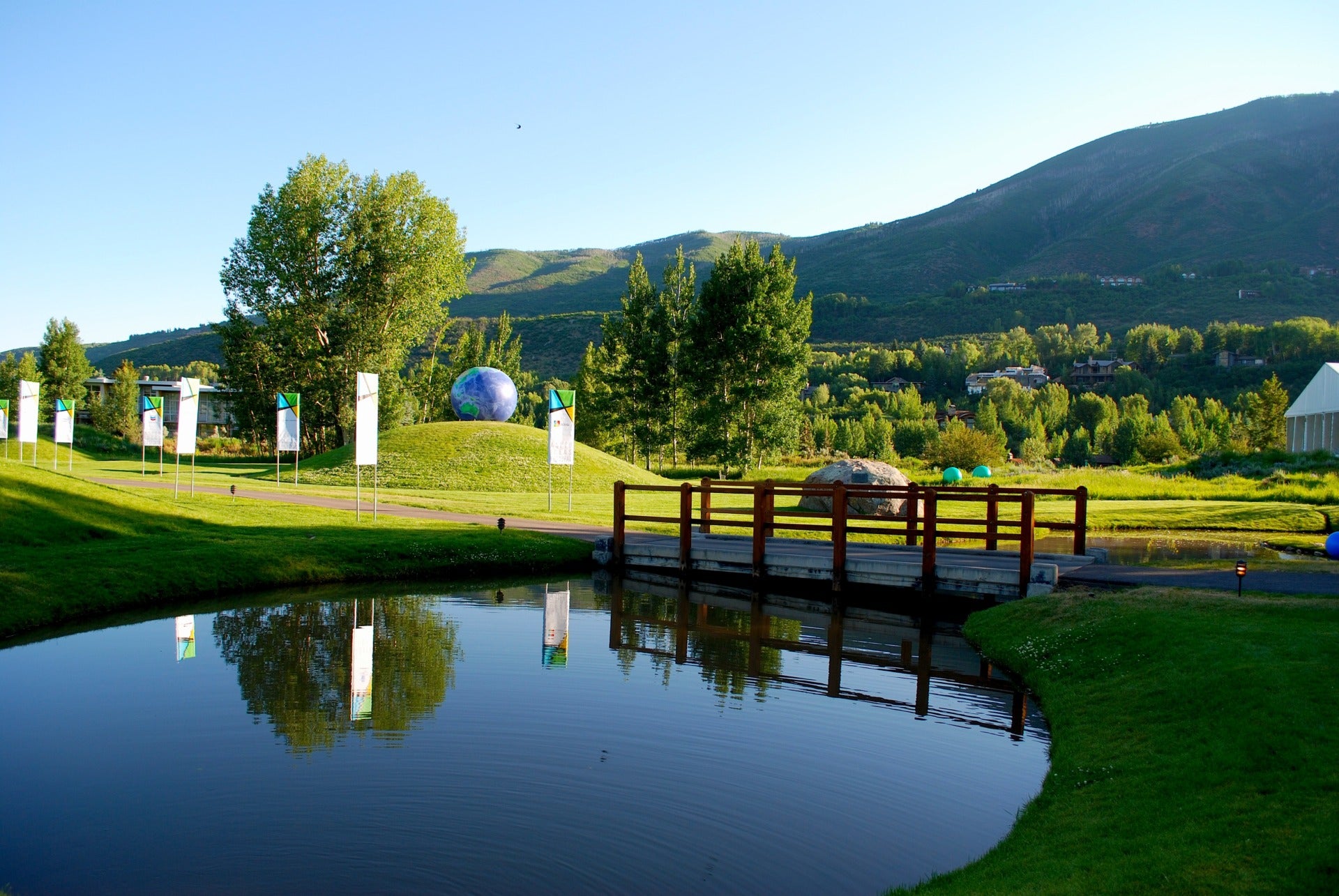Today marks 100 years since the passage of the Indian Citizenship Act, a piece of legislation granting U.S. citizenship to Native American people.
Recognizing the importance of connecting Native youth to pathways of civic engagement, the Aspen Institute’s Center For Native American Youth (CNAY) partnered with the National Urban Indian Family Coalition to launch the Democracy is Indigenous campaign in 2020, mobilizing young leaders who want to enhance civic engagement at all levels of governance. Many Native American youth are citizens of two sovereign political entities–their tribe, and the United States–and they have a role to play in shaping the social, cultural, and political affairs of both nations.
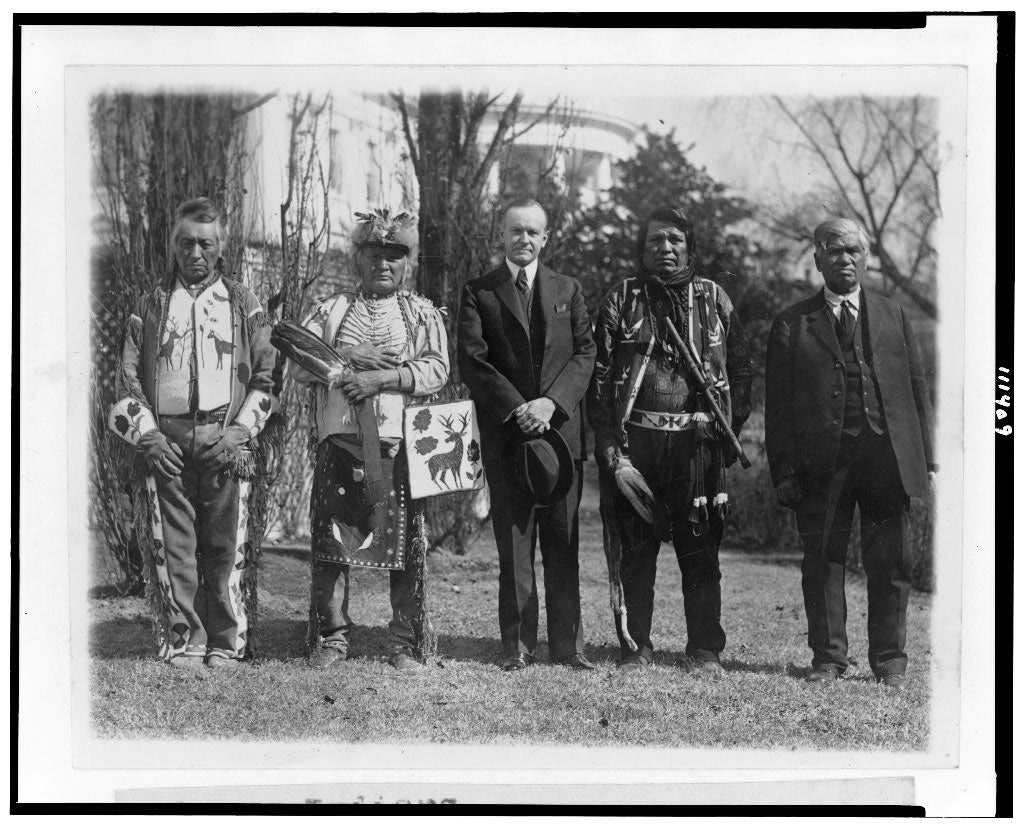
President Calvin Coolidge, who signed the Indian Citizenship Act into law, poses with Native Americans from the Plateau area in the Northwestern United States. / Library of Congress
With tailored training sessions, the Democracy is Indigenous program equips young individuals with the knowledge and skills necessary for civic engagement, encouraging them to actively participate in shaping the future of their communities. Participants can also receive grant funding to support the development of community-based projects that drive civic engagement.
Anthony Tamez-Pochel often leads these training sessions, drawing on his experience as one of the nation’s youngest Native American elected officials. Tamez was born and raised in Chicago and is Saulteaux from Treaty 4 territory, Sicangu Lakota, and Black. He joined forces with CNAY in 2018 as a Champion for Change, and later served as the Chairman of the CNAY Youth Advisory Board in 2022. He has experienced firsthand the impact that investment in youth can have, as well as the importance of working with Native youth to foster a deep understanding of the unique, intersecting needs of both their tribes and their broader communities.
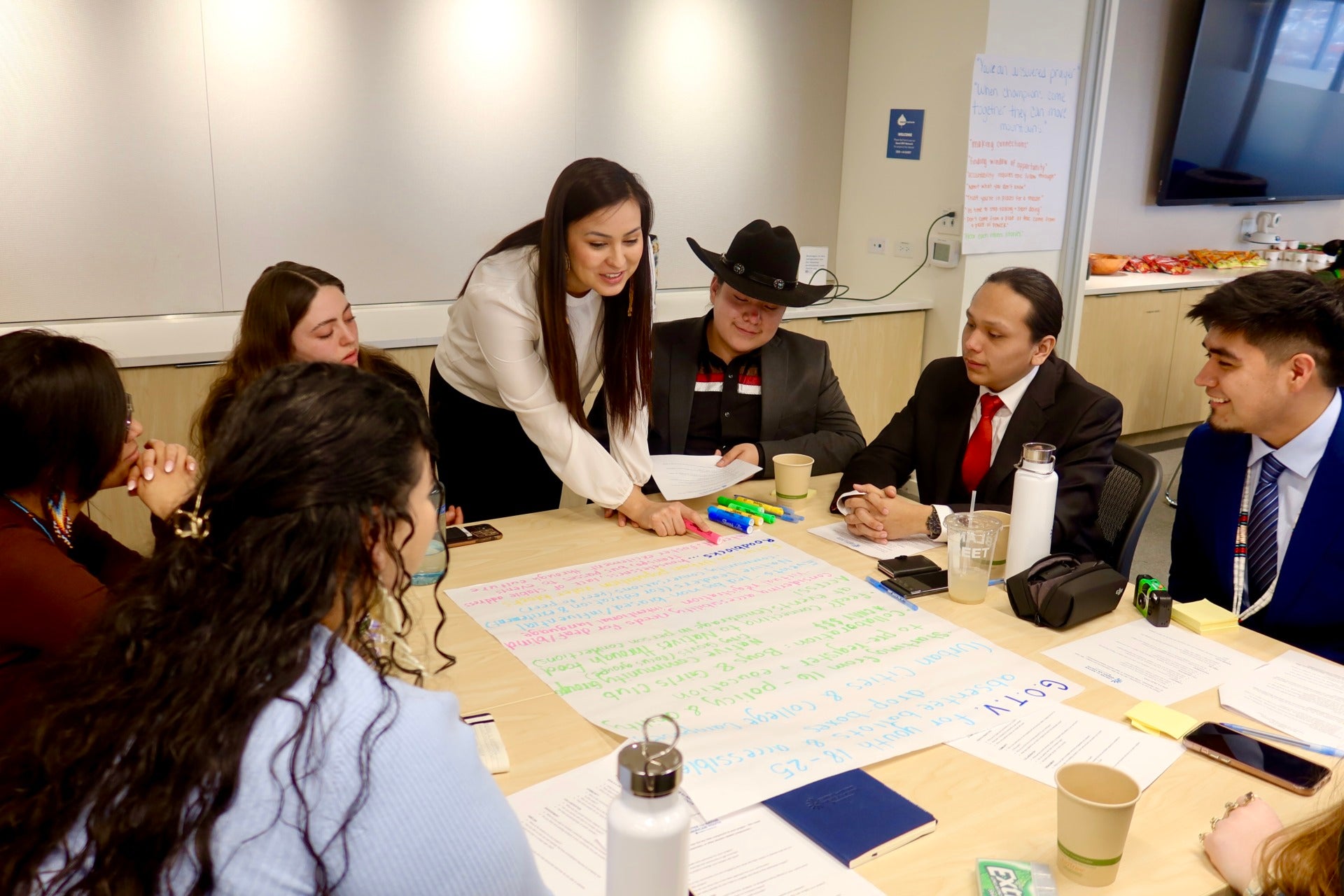
CNAY’s 2023 Champions for Change discuss a “get out the vote” initiative for Native youth. / CNAY
The 100th anniversary of the Indian Citizenship Act is both a moment of pause and a time for reflection. While U.S. democracy was inspired by the Iroquois Confederacy, the oldest participatory democracy, Native Americans have historically been and continue to be systematically excluded from participation. During the training, a timeline representing the experiences of Native Americans post-1600 reminds us just how much historical trauma has been experienced by Native people as a result of genocide, mistreatment, and forced displacement. Though, as Tamez points out, it’s also a story that highlights the power of civic action by Indigenous people: “It took Native people, it took Indigenous people advocating for fair treatment and rights in order to get to the period that we’re in. In order for us to keep progressing forward, we have to be civically involved and have a say in how you, your people, and your community is treated.”
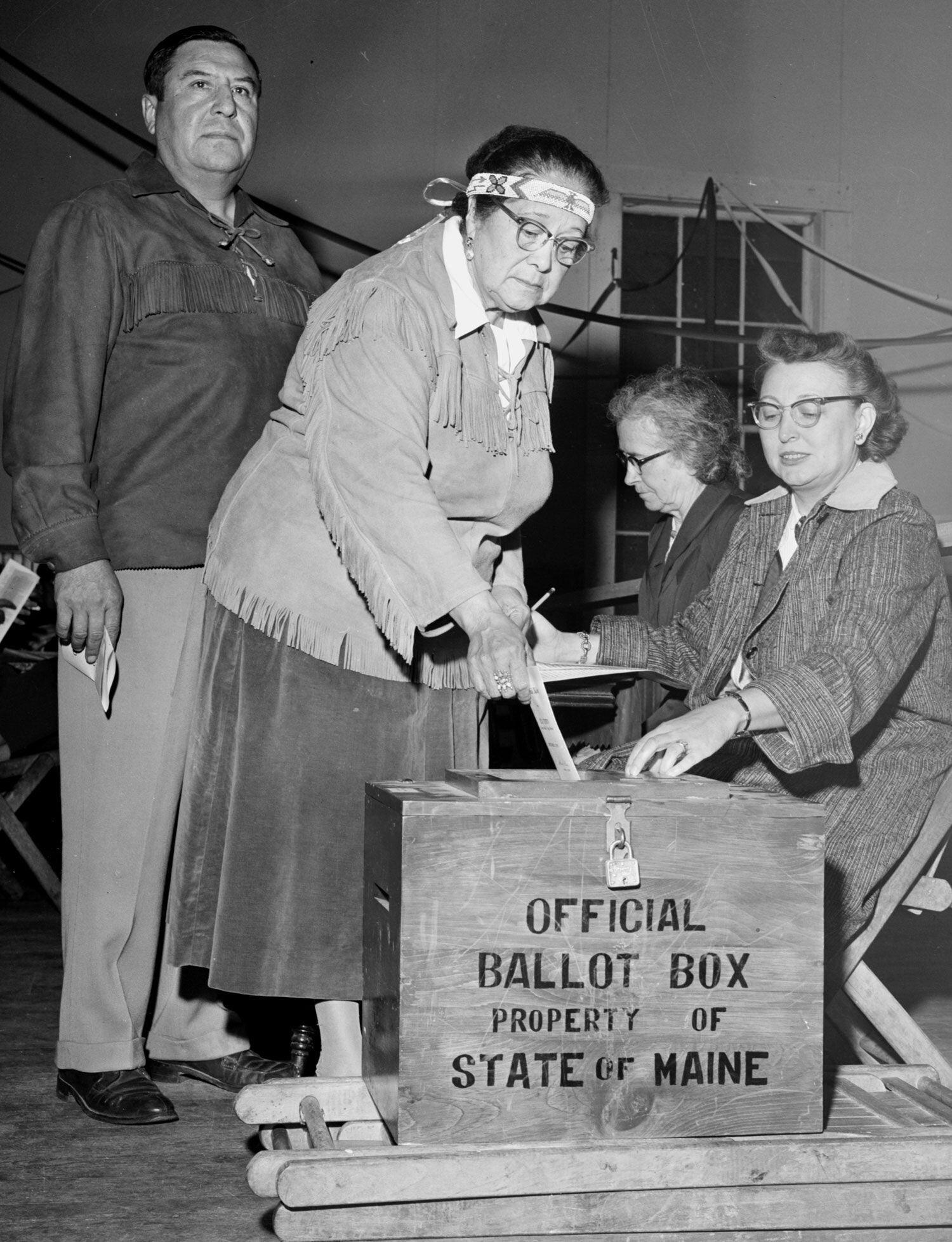
Princess Watawaso of the Penobscot Indian Tribe at Old Town casts the first vote of a Native American on a reservation in Maine in 1955. Behind the princess is her husband, Chief Bruce Poolaw. / Photo by Danny Maher, Bangor Daily News
Central to the work of this initiative is the idea of Indigenizing democracy. At CNAY, respecting and incorporating traditional Indigenous knowledge, values, belief systems, and forms of government is a focal point of the work. Indigenizing respects and uplifts the rich histories and identities of Indigenous Peoples, creating a space that is reflective of their lived experiences in hopes of supporting the impacts they wish to have on the world.
“We know civic engagement can be very complex. We also know that often how civic engagement is implemented in Western societies doesn’t always work for Native communities,” Tamez shares. “And there is no one-size-fits-all approach. Many think Native people are a monolith culture–we are not. That is showcased within our communities, how different they are, and their complexities.”
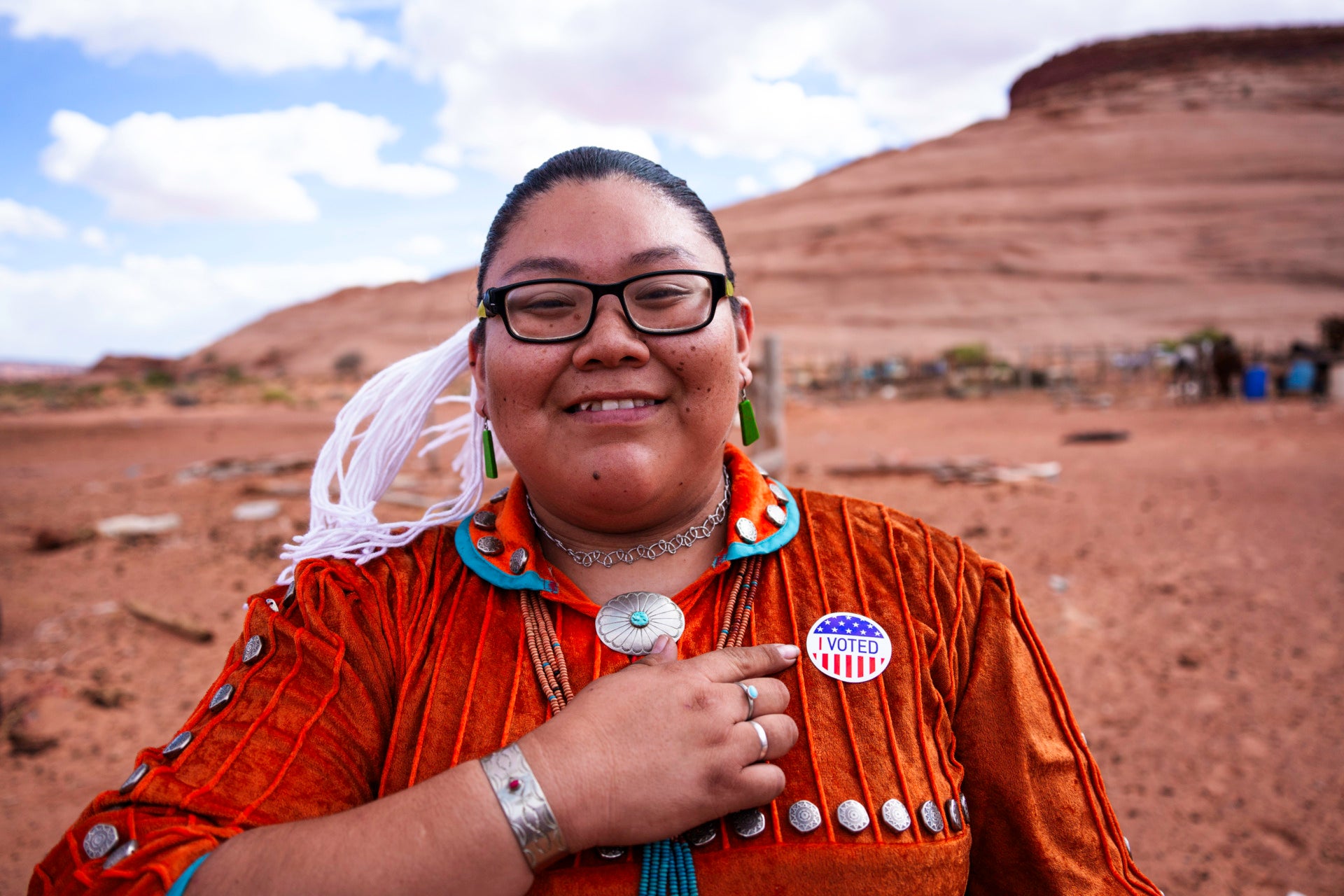
A young Navajo woman in Monument Valley Tribal Park, Arizona displays her “I Voted” sticker. / Getty Images
Previous community-based projects that the Democracy is Indigenous campaign has funded include a public art project aimed at inspiring Native youth, a stickball tournament featuring a voter registration drive, a ride to the polls initiative on the Standing Rock Reservation, as well as a social media campaign educating about the issues at stake in upcoming elections. These projects come from the youth living in these places, and as a result they reflect a deep understanding of the specific needs of that community.
- A group of Native youth pose in front of the Las Vegas Indian Center’s “Our Voices Matter” mural, painted by local artist Gear Duran. / CNAY
- A young Native person looks on at the U.S. Capitol building. / CNAY
The training features a quote by Angela Davis, American political activist and philosopher:
“Elections are never really about change. The change has always come from masses of people coming together. Elections have always been about broadening or shrinking the capacity to bring about change. We have to figure out not who is the best candidate, but under what conditions can we engage in the struggle and take it to a new level.”
In the 2020 presidential election, voter turnout was lowest among those ages 18 to 24. As we head into another election season, it’s critical that young people, particularly Native youth, have a voice in shaping the future of our democracy.
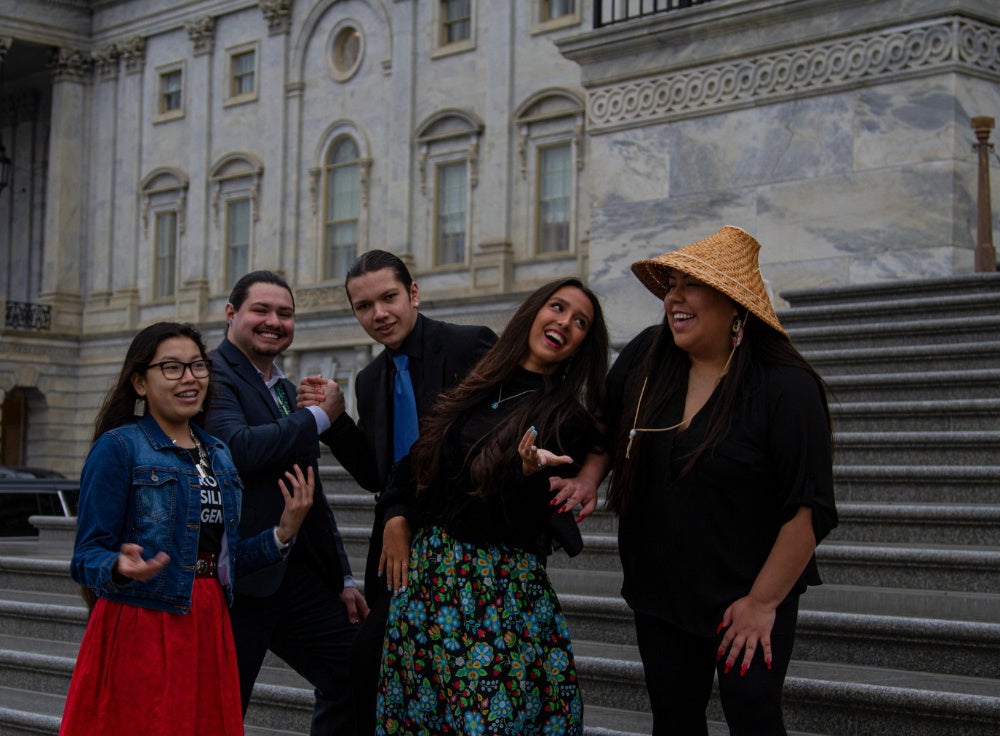
CNAY’s 2020 Champions for Change enjoying their time in Washington, DC. / CNAY
The Center for Native American Youth’s Democracy is Indigenous campaign is dedicated to mobilizing young leaders, aged 11-24, wishing to enhance civic engagement at the local, tribal, state and federal levels. Learn more and register for one of their monthly training sessions, and follow them on Instagram to keep up with their work.


